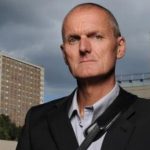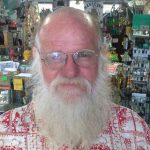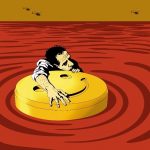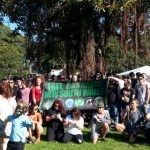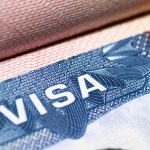Legalising Psychedelic Drugs: An Interview with LSD Advocate Greg Kasarik
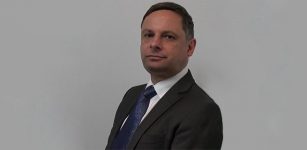
Greg Kasarik appeared in Melbourne’s Magistrates Court on January 10 this year, on a charge of being in possession of a drug of dependency. Kasarik was arrested on April 19 last year, when he was found in possession of LSD, while he was tripping on the steps of the Victorian parliament house.
At last week’s trial, Kasarik argued that the state’s laws regarding LSD were inconsistent with the Victorian Charter of Human Rights and Responsibilities 2006, as these laws were impinging upon his rights of freedom of religion and belief.
Kasarik asked that the matter be referred to the Victorian Supreme Court. Magistrate Paul Smith refused the request. At that point, Kasarik pleaded guilty to the charge of possession. He then produced a vial of LSD in the courtroom and asked to be rearrested.
The former army corporal and careers counsellor plans to continue his push to have his case referred to the highest court in the state, when he appears in court again in April.
Coming out of the closet
A long-time advocate for the legalisation of LSD, Kasarik uses the drug as part of his “spiritual practice.” He’s campaigning for the Victorian government to make LSD available on the market in a regulated way.
In 2010, Kasarik went public about his use of the drug, when he announced it on his website. He said that at this time Dr Alex Wodak, president of the Australian Drug Law Reform Foundation, described his move as “effectively coming out of the closet.”
Dr Wodak said that people like me “are really in the same position that the gay community were in the late 60s and early 70s,” Kasarik recalled. “We experience the same kind of loss of livelihood and rejection by friends and family. But you need people to come out of the closet.”
LSD social activism
Kasarik went on to conduct a two week hunger strike in 2012. He had a final meal of magic mushrooms, before setting off on a fortnight without eating in aid of legalising the psychedelic substance.
At the end of the hunger strike, he celebrated by taking LSD on the steps of parliament house. The date, April 19, coincided with the anniversary of Bicycle Day. On this day in 1943, the Swiss scientist Albert Hoffman undertook the first deliberate ingestion of the psychedelic substance.
Greg has continued to mark the anniversary of Bicycle Day each year by taking LSD on the steps of parliament house, as a protest against the continued prohibition of the substance. It was on this day last year that police arrested him.
But Kasarik’s activism has taken its toll. The stigma surrounding his drug use has led to unemployment for most of the last seven years, and some of his friends have actually turned their backs on him.
Sydney Criminal Lawyers® spoke with Greg Kasarik about his day in court and why LSD is so dear to his heart.
So Greg, you’re advocating for the legalisation of LSD. What is it about this drug that’s making you put yourself out on the line for it?
I use it as part of my spiritual practice, as do literally tens of thousands of other Australians.
LSD is part of a group of substances that I call transcendent compounds. Basically, they’re non-addictive, non-toxic and psychologically safe in an appropriate dose and setting.
They allow people to experience mystical states or transcendence and divine connection – very similar to, and pretty much identical to, those that you’d experience in other states, such as meditation.
What other substances do you class as transcendent compounds?
There other ones are psilocybin, which is found in the so-called magic mushrooms. There’s mescaline, which is found in the peyote cactus. It’s used legally in America by the Native American Church. And there’s dimethyltryptamine, which is found in the shamanic brew called ayahuasca used in South American.
How long have you been using LSD? And what does it do for you?
I’ve been using it for over a decade and as I said, it allows me to achieve these states of divine transcendence. I’m actually a natural mystic, so I had my first mystical experience as a teenager.
LSD allows me to do it reliably. If I have a question, or I have something that I want to ponder, or an idea that I want to think about, then I can actually take some LSD and go into that space and sort of explore the idea.
One of the things that LSD is famed for in the research is its ability to increase creativity – to allow people to form ideas and connections that they might not otherwise come up with. And there’s actually at least one Nobel Prize that’s linked to a discovery that was made under the influence of LSD.
Last week, you appeared at the Melbourne Magistrate’s Court on a charge of possessing a drug of dependence. What actually happened there?
Effectively, I argued that the matter should be referred to the Supreme Court of Victoria under section 7 and section 14 of the Victorian Charter of Human Rights and Responsibilities Act.
Section 14 is the section that protects the right to freedom of thought, conscience, religion and belief. It basically says that you can practice your religion in public and in private, as an individual and as part of a community.
And Section 7 is the one that basically puts stipulations on, or limitations on, the government’s right to prohibit certain rights. So effectively, the government needs a demonstrably justifiable reason in order to prohibit a particular right protected by the charter.
In the last six years that I’ve been talking to the government, and various politicians, at no point have they come up with a demonstrably justifiable reason. They’ve always come up with community health and safety and all this sort of stuff.
Late last year, I actually put in two freedom of information requests. One to the Office of the Minister of Police and the other to the Department of Human Services, just asking if they’ve ever done a harm assessment on any of the transcendent compounds. It turns out they haven’t. They’ve never done that.
And the other thing is, the world’s leading researchers have written scientific references for me, basically backing the position that, if used appropriately, LSD is a safe drug. It’s non-addictive. It’s non-toxic. It’s psychologically safe in an appropriate dose and setting.
So effectively, the point of exercise is to get to the Supreme Court and force the Victorian government to either put up or shut up – come up with a demonstrably justifiable reason.
In past decisions the Supreme Court has made it clear that demonstrably justifiable means actual real life evidence, so they’d need to draw on the science.
And the thing is the world’s leading scientific minds are on my side, so there isn’t anyone the Victorian government could draw upon for a demonstrably justifiable reason.
So under the charter that would lead to a declaration of inconsistent interpretation under section 36.
It wouldn’t change the law. All it would do is that the minister would need to respond to the Supreme Court saying that the Drugs, Poisons and Controlled Substances Act 1981 is incompatible with that particular aspect of the charter.
The other thing I would actually make clear is I think it’s important just to remind people in NSW not try this at home. If I was charged in NSW for LSD possession, there would be no option because there are no religious freedoms in the same sort of way.
When the magistrate said your case wouldn’t be going to the Supreme Court, what did you do then?
At that point it bounced back into the “do you plead guilty” mode. And I made it clear that I did object to being charged with a drug of dependence.
The term drug of dependence is actually a political term. It was basically used initially to stigmatise drug use. LSD is definitely not addictive. It’s not a drug of dependence.
I did plead guilty. But I made it abundantly clear to the magistrate that I objected to pleading guilty to a drug of dependence, when it actually wasn’t. The magistrate then dismissed the charges. And fairly much said that he didn’t think I’d find a magistrate who’d convict me.
At that point, I announced to the magistrate that I was actually in possession of LSD and requested that he arrange for my rearrest. And he basically just pointed to the police who had already processed me previously and were in court to give evidence against me as it was required.
I was basically rearrested by the same officers.
And why did you want to be rearrested?
Because I’m going to keep at this until I get to the Supreme Court.
I’ve figured where I went wrong in my arguments last Tuesday. The magistrate agreed with me with respect to the science. It turns out he’s actually read one of Timothy Leary’s books – Leary was one of the people that popularised LSD in the 1960s – so the magistrate was perfectly happy to accept that LSD can be used for spiritual purposes.
Where the disagreement occurred was that section 29 of the charter states that nothing in the charter actually invalidates any law or statute. He didn’t see any point in making a referral.
So what I should have done was really referred the magistrate back to section 1, which is the statement of the purpose of the act. Section 1(2)(e) specifically states that the Victorian Supreme Court has a role of adjudicating and identifying areas of disconnect between the charter and the various statutes and requires the minister to make a response to those.
I’m doing this by myself without a lawyer. I can’t afford a lawyer. I’ve approached a number of lawyers and the reality is a lot of people look at me and think you have no idea what you’re talking about.
But every time I face the magistrate I learn something new and eventually I’ll get my referral to the Supreme Court.
How would a regulated psychedelics market work?
To be honest with you, that is an open question. And it’s not really a question that I’m equipped to answer.
Even if you look at the regulation of cannabis in the United States, there’s a whole lot of lessons that are being learnt over there.
I’m an insomniac and I’ve been a chronic insomniac all my life. And the example I use is that I use temazepam on occasion. I use diazepam. I can go to a chemist and get a 5 mg tablet of diazepam. And know it is a 5 mg tablet of diazepam. It’s manufactured under controlled circumstances, using appropriate ingredients. It’s distributed via regulated channels. The government knows where every packet of diazepam is.
And so certainly, none of us in the community wants to see this regulated in the same way as alcohol. The last thing that any of us want to see is the idea that you turn 18 and you can suddenly walk into something equivalent to a pub, you get ten tabs of LSD and have an absolutely terrible time.
It’s a powerful psychedelic. It’s a powerful psychoactive. It needs to be treated with respect. And in traditional cultures what tends to happen is that elders would initiate new people into the tradition – into the substances – in a safe and controlled manner. So something along those lines would be ideal.
But, I’m ultimately one voice out of thousands. So what regulation ultimately looks like is up to the government to decide. And at the end of the day, the government has the right to regulate how it sees fit and in such a way that it doesn’t constrain use.
For example, it would be disappointing if people had to be part of a religious movement, because that would kind of constrain people’s religious freedom.
I’d personally not be in favour of a medical model. I wouldn’t like to see doctor’s for example having to prescribe it in that respect, because I don’t think a doctor is an appropriate gatekeeper for someone’s spirituality.
So there’s a whole lot of complexities. But at this point we are basically at the start. We’re fighting for the right to have regulated access.
Once we’ve achieved recognition that regulated access is both desirable and a fundamental human right, at that point, we can sit down at the table with the various parties and say this is how we can make regulated access work.
And lastly, what’s the next step for you? Where are you going to take your campaign now?
The sad reality is I’m a one man band. One of the difficult things about what I do is that a lot of people don’t want to be associated with me, because of the stigma of drug use.
There has been talk since the article in the Age that some sort of fundraising campaign would be good.
Ideally, I’d like to get a job. Financial security is a huge deal at the moment, as is having a place to stay.
But in terms of the immediate way forward of this campaign, it’s really about what happens on April 20, which is when I face the court next.
Greg thanks very much for speaking with us today. And best of luck with your continued LSD activism.
That’s cool. And thank you.


